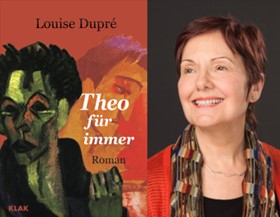Towards Postmigrant Social Imaginaries: Transatlantic Perspectives on Intercultural Negociations of Racism, Discrimination and Diversity in Canada and Europe
Postmigrantische Social Imaginaries: Transatlantische Perspektiven auf interkulturelle Verhandlungen von Rassismus, Diskriminierung und Diversität in Kanada und Europa
Vers des imaginaires sociaux post-migrants : Négociations interculturelles du racisme, de la discriminiation et de la diversité dans une perspective transatlantique (Canada-Europe)
Date: Monday, March 4, 2024
Venue: Friedrich Schiller University Jena (Germany)
Organizers: Christoph Vatter, Charlotte Kaiser, Julien Bobineau (all Friedrich Schiller University Jena, Germany), Philippe Néméh-Nombré (Université Concordia, Canada)
Deadline: November 6, 2023
Migration has shaped and continues to shape most contemporary societies in the Global North and the Global South. These societies, whether host countries or transit countries, such as North African states with which the EU has signed several treaties to prevent Sub-Saharan Africans from migrating to Europe, can be defined as postmigrant: they are becoming more and more diverse, which further blurs any so-called clear boundaries between different groups (Foroutan 2021). The concept of the postmigrant society does not, however, refer to any utopian vision of egalitarian and peaceful cohabitation. It characterizes a phase of intense debate and conflict around nothing less than the foundations of liberal democracy and its incarnation by the modern nation-state. While racial awareness as a topic has become increasingly present in the public sphere, diversity remains a contested moral, conceptual, and discursive terrain.
Debates over the objective and normative meanings and uses of Diversity happen across every area of society, such as (higher) education, job markets and business policies, and cultural industries. However, they are particularly heated regarding the state’s judiciary and executive institutions. The early 2020s, for example, saw a transnational revival of critiques of policing and police violence in Western countries and beyond, which have channeled a significant part of transformative efforts and commitment to social justice, articulated similar intentions and desires, and (re-)created social imaginaries, all the more so for younger generations.
Social imaginaries are an integral part of social, economic, and political power structures and institutions and can contribute to social cohesion, but they can also give rise to new forms of difference and dissent (Gaonkar/Lee 2002; Taylor 2004; Alma/Vanheeswijck 2018). As dynamic phenomena, social imaginaries constantly change, which may reciprocally affect social or political processes. Individuals and groups can change these imaginaries or use them – consciously or unconsciously – for various social, economic, and political purposes. However, by creating fundamental meaning and guiding human action, social imaginaries also shape social institutions; they can stabilize or challenge power and partly determine the boundaries within which we function collectively.
This symposium aims to create a space for reflecting on the circulation of social imaginaries in the postmigrant society and between postmigrant societies, especially in Canada and Western Europe. We invite researchers from the Humanities and Social Sciences to contextualize their reflections within the broader context of the rise of authoritarianism and the negotiation of minorities’ rights between local issues and transnational echoes. We welcome papers drawing on critical approaches such as, among others, feminist and queer theory, environmental justice, decoloniality and postcolonialism, Black radical thought, and Indigenous studies.
Papers may address, in particular, the following topics and questions:
State institutions: How is cultural and racial identity accounted for and negotiated in policing and state surveillance? What do state institutions understand by “diversity”? Can institutions such as the police and the penal system be sustainably reformed towards equality and inclusion? What potential alternatives have been and can be implemented?
Migration and borders: What new understandings of migration, asylum, movement, and displacement arise in the post-migrant, global, ecocidal, and late capitalist era? What implications do these changes entail for studying diasporas, transnationalism, and international relations? How are these developments and profound changes dealt with in different areas of society?
Storytelling and social imaginaries: How do cultural expressive forms, such as literature, film, music, and media, represent, mitigate or create tensions regarding diversity, racism, migration, and, more broadly, exclusion, discrimination, and oppression? How do activists communicate the changes they call upon, and through what means? How are the social imaginaries created, told, and negotiated?
Deadline for the submission of proposals: November 6, 2023
Notification of acceptance: November 25, 2023
Please send an abstract (ca. 300 words) + a short biography to iwk@uni-jena.de.
Venue: The event will take place in person at the Friedrich Schiller University Jena (Germany). The choice of Jena as the conference venue refers to the special significance that the University of Jena plays in German discourses on racism. In 2019, during the 112th annual meeting of the German Zoological Society, the “Jena Declaration” was published, in which scientists from zoology, genetics, and evolutionary biology distanced themselves from their historical predecessors at the University of Jena, in particular from Ernst Haeckel (1834-1919), who was also known as the “German Darwin” and established racist patterns of thought in the German Academia. The Jena Declaration of 2019 underlines that the concept of “race” is the result of racism and not its precondition and calls for a deletion of the term “race” from the German Constitution.
Languages: The preferred language is English, but presentations in French and German are welcome. To ensure accessibility, we ask that PowerPoint slides be presented in one of the languages other than that of the talk. We would especially like to encourage early career researchers (PhD students, Postdocs) to submit a proposal.

